第544章 VOLUME VII(73)
One eighth of the whole population was colored slaves, not distributed generally over the Union, but localized in the southern part of it. These slaves constituted a peculiar and powerful interest. All knew that this interest was somehow the cause of the war. To strengthen, perpetuate, and extend this interest was the object for which the insurgents would rend the Union even by war, while the Government claimed no right to do more than to restrict the territorial enlargement of it. Neither party expected for the war the magnitude or the duration which it has already attained. Neither anticipated that the cause of the conflict might cease with or even before the conflict itself should cease. Each looked for an easier triumph, and a result less fundamental and astounding. Both read the same Bible and pray to the same God, and each invokes His aid against the other. It may seem strange that any men should dare to ask a just God's assistance in wringing their bread from the sweat of other men's faces, but let us judge not, that we be not judged. The prayers of both could not be answered. That of neither has been answered fully. The Almighty has His own purposes. "Woe unto the world because of offenses; for it must needs be that offenses come, but woe to that man by whom the offense cometh." If we shall suppose that American slavery is one of those offenses which, in the providence of God, must needs come, but which, having continued through His appointed time, He now wills to remove, and that He gives to both North and South this terrible war as the woe due to those by whom the offense came, shall we discern therein any departure from those divine attributes which the believers in a living God always ascribe to Him? Fondly do we hope, fervently do we pray, that this mighty scourge of war may speedily pass away. Yet, if God wills that it continue until all the wealth piled by the bondsman's two hundred and fifty years of unrequited toil shall be sunk, and until every drop of blood drawn with the lash shall be paid by another drawn with the sword, as was said three thousand years ago, so still it must be said, "The judgments of the Lord are true and righteous altogether."
With malice toward none, with charity for all, with firmness in the right as God gives us to see the right, let us strive on to finish the work we are in, to bind up the nation's wounds, to care for him who shall have borne the battle and for his widow and his orphan, to do all which may achieve and cherish a just and lasting peace among ourselves and with all nations.
TELEGRAM TO GENERAL JOHN POPE.
EXECUTIVE MANSION, WASHINGTON, March 7, 1865
MAJOR-GENERAL POPE, St. Louis, Missouri:
Please state briefly, by telegraph, what you concluded about the assessments in St. Louis County. Early in the war one Samuel B.
Churchill was sent from St. Louis to Louisville, where I have quite satisfactory evidence that he has not misbehaved. Still I am told his property at St. Louis is subjected to the assessment, which I think it ought not to be. Still I wish to know what you think.
A. LINCOLN.
TO GENERAL U.S. GRANT.
WASHINGTON, D. C., March 8, 1865.
LIEUTENANT-GENERAL GRANT, City Point, Va:
Your two despatches to the Secretary of War, one relating to supplies for the enemy going by the Blackwater, and the other to General Singleton and Judge Hughes, have been laid before me by him. As to Singleton and Hughes, I think they are not in Richmond by any authority, unless it be from you. I remember nothing from me which could aid them in getting there, except a letter to you, as follows, to wit:
EXECUTIVE MANSION, WASHINGTON CITY, February 7, 1865.
LIEUTENANT-GENERAL GRANT, City Point, Va.:
General Singleton, who bears you this, claims that he already has arrangements made, if you consent, to bring a large amount of Southern produce through your lines. For its bearing on our finances, I would be glad for this to be done, if it can be, without injuriously disturbing your military operations, or supplying the enemy. I wish you to be judge and master on these points. Please see and hear him fully, and decide whether anything, and, if anything, what, can be done in the premises.
Yours truly, A. LINCOLN.
I believe I gave Hughes a card putting him with Singleton on the same letter. However this may be, I now authorize you to get Singleton and Hughes away from Richmond, if you choose, and can. I also authorize you, by an order, or in what form you choose, to suspend all operations on the Treasury trade permits, in all places southeastward of the Alleghenies. If you make such order, notify me of it, giving a copy, so that I can give corresponding direction to the Navy.
A. LINCOLN.
PROCLAMATION OFFERING PARDON TO DESERTERS, MARCH 11, 1865
BY THE PRESIDENT OF THE UNITED STATES
OF AMERICA